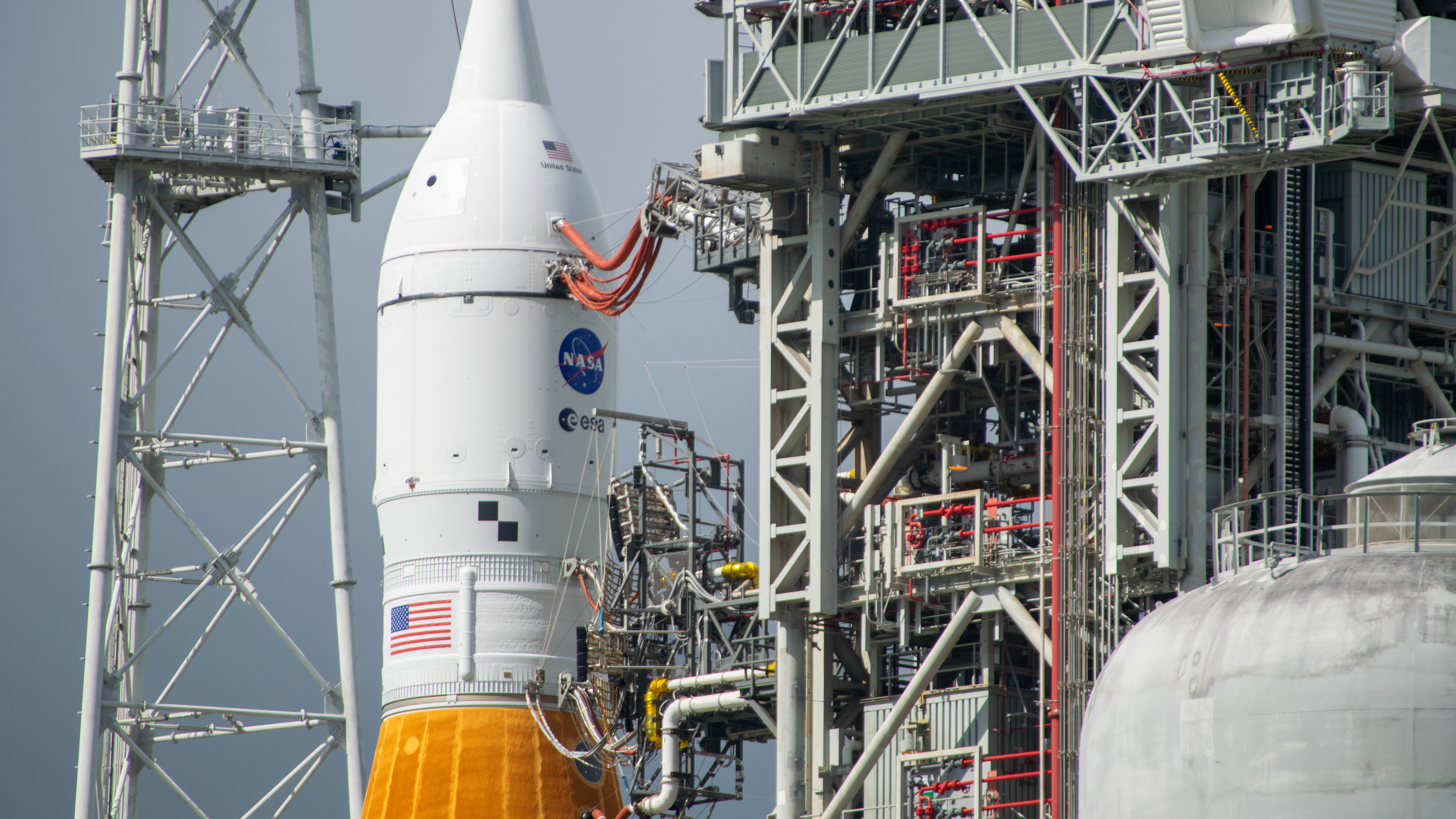Artemis 1 flies away from the launch pad in epic Orion spacecraft video
The top-down view shows what it was like to leave Earth, from the spacecraft's point of view.
Soar into space aboard a moon rocket in an epic new video.
Fresh footage from the launch abort system onboard Artemis 1, the first flight of NASA's Artemis program, shows the view from on high as the engines blast off for a moon mission on Nov. 16. Billowing smoke and a receding launch pad fill the dizzying video view, which gazes straight at the ground below during ascent. Moments later, the launch abort system pops off the rocket's top.
Artemis 1 carried 24 cameras on board the rocket and the Orion spacecraft, some of which are still transmitting live footage periodically nearly every day.
After Orion's auspicious journey through the darkness over NASA's Kennedy Space Center, the spacecraft is continuing its long lunar voyage. The next stage will be entering the moon's orbit today (Nov. 25); you can watch that live here at Space.com.
Orion is a human-rated spacecraft, but is flying uncrewed with a trio of mannequins and related data collection systems to ensure that the system is fully ready for humans on future missions. Radiation, vibration and other metrics will be assessed during the spacecraft's expected 25-day journey past the moon and back to Earth.
In photos: Amazing views of NASA's Artemis 1 moon rocket debut
Yeeeeeeet! 🚀This video shows @NASA_Orion’s launch abort system (LAS), built by our engineers, being jettisoned following the successful launch of @NASA_SLS! 🤯 pic.twitter.com/nsszEGnu5PNovember 24, 2022
The SLS had eight cameras on board to document liftoff, ascent and the external rocket environment during launch, according to NASA information, with Orion carrying the other 16. These will all be used to assess how ready Orion and the rocket will be for future Artemis missions, which are planned to continue with the Artemis 2 crewed mission around the moon as soon as 2024.
Breaking space news, the latest updates on rocket launches, skywatching events and more!
The "rocket cam" view came courtesy of a camera mounted on the exterior of the Orion's crew module adapter, which connects the spacecraft to the rocket. Later in the video, you can see the launch abort system jettisoning as planned, courtesy of a second camera mounted inside the Orion cabin, which gazed outside the top hatch window.
Separate from all of these rocket and spacecraft cameras, Orion has three more cameras that are used as part of a technology demonstration for an in-space version of Amazon's Alexa. Dubbed Callisto, the three cameras for the automated virtual assistant will be used "to test video conferencing capabilities, and may enhance the public's ability to imagine themselves inside Orion," NASA officials wrote.
Elizabeth Howell is the co-author of "Why Am I Taller?" (ECW Press, 2022; with Canadian astronaut Dave Williams), a book about space medicine. Follow her on Twitter @howellspace. Follow us on Twitter @Spacedotcom or Facebook.

Elizabeth Howell (she/her), Ph.D., was a staff writer in the spaceflight channel between 2022 and 2024 specializing in Canadian space news. She was contributing writer for Space.com for 10 years from 2012 to 2024. Elizabeth's reporting includes multiple exclusives with the White House, leading world coverage about a lost-and-found space tomato on the International Space Station, witnessing five human spaceflight launches on two continents, flying parabolic, working inside a spacesuit, and participating in a simulated Mars mission. Her latest book, "Why Am I Taller?" (ECW Press, 2022) is co-written with astronaut Dave Williams.
